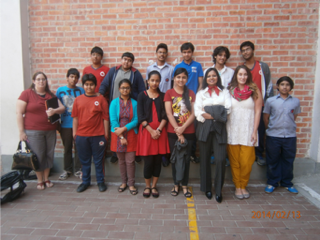Three gunmen who stormed a five-star hotel in the restive Pakistani province of Balochistan, killing at least one guard, have been shot dead by security forces, officials say.
The attack and subsequent siege, which targeted the Zaver Pearl-Continental Hotel in the strategic port city of Gwadar, lasted several hours.
A hotel spokesman said there were no guests and few staff due to Ramadan.
The separatist Balochistan Liberation Army said it carried out the attack.
The group said that the hotel, the centrepiece of a multi-billion-dollar Chinese project, was selected in order to target Chinese and other investors.
Militants in Balochistan oppose Chinese investment, saying it is of little benefit to local people.
What do we know about the attack?
The gunmen stormed the hotel, usually popular with top government officials and foreign visitors, at around 16:50 local time (11:50 GMT), killing at least one security guard who tried to stop them at the entrance.
Security forces entered the hotel and took part in a gun battle with the militants, before cornering them in a staircase leading to the top floor, officials said.
Due to the Muslim holy month of Ramadan, the hotel had no guests and a very limited number of staff, a Zaver Pearl-Continental spokesperson told the BBC.
However, earlier reports suggested that hotel guests had been evacuated safely.
The hotel sits on a hilltop overlooking the Gwadar port on the Arabian Sea, which is being developed by China as part of the China-Pakistan Economic Corridor (CPEC), a network of roads, railway and pipelines between the two countries.
On Twitter, the Chinese embassy in Pakistan condemned the attack, which comes just weeks after gunmen killed 14 people, including 11 military personnel, in the region.
A worrying breach of security Gwadar is a city with a heavy military presence. It is viewed by both Chinese and Pakistani officials as the lynchpin of the CPEC, aiming to connect western China with the Arabian Sea.
When I visited the port city in late 2017 with other international journalists, we travelled in convoys guarded by armed escorts, and stayed in the same hotel that was targeted.
This attack will therefore be seen as a worrying breach of security, and it is not the first time Chinese interests have been targeted by this militant group. Last year the Balochistan Liberation Army (BLA) carried out an attack on the Chinese consulate in Karachi.
After that attack, both Pakistani and Chinese officials stressed that violence would not derail their close co-operation. But militant activity in Balochistan remains one of the major concerns about the viability of the CPEC project.
What is the situation in Balochistan?
Home to a long-running insurgency, Balochistan is Pakistan’s poorest and least developed province.
It shares a large, porous border with Afghanistan and Iran.
Its economy is dominated by natural resources, particularly natural gas, and is being transformed by major Chinese infrastructure projects on the CPEC, part of the ambitious Belt and Road initiative.
Several militant groups operate in the region, including the Pakistani Taliban, the BLA and the Sunni Muslim extremist group Lashkar-e-Jhangvi.






















